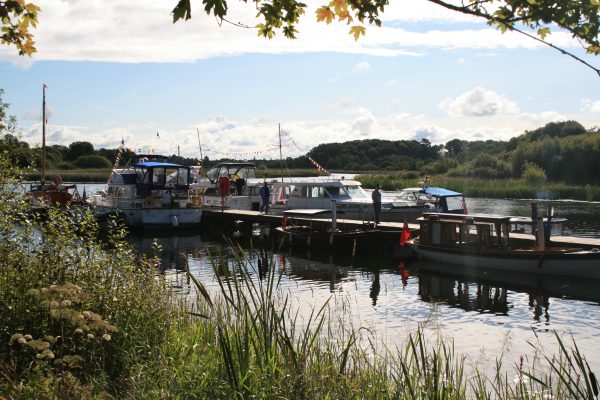With the flow of EU funding set to dry up, and the possibility of a hard border, Irish Waterways navigate uncharted territory.
There is considerable uncertainty regarding all matters surrounding Brexit; which in itself presents its own set of challenges. The challenges are especially acute in the Border Region – between Northern Ireland and The Republic of Ireland – and what it will mean for cross-border collaboration going forward.
One of the big beneficiaries of both cross-border collaboration and EU funds is Waterways Ireland, and the impending fallout from Brexit is considerable cause for concern.
Waterways Ireland currently manages more than 1,000km of inland navigable waterways, North and South, including the Shannon-Erne system, mainly for recreation and tourism. Moreover, like the other North-South institutions, Waterways has depended heavily on EU funding and would have anticipated that future funding could have been received, either directly or indirectly, in order to further develop infrastructure and promote increased recreational use.
The result of the Brexit referendum will however end the flow of such EU structural funds to the UK and ultimately no longer be available to bodies such as Waterways Ireland in Northern Ireland. Whilst any funding loss could be replaced ‘at least partly’ by the UK government, it will be a challenge to develop infrastructural assets in the cross-border regions.
Brexit has caused reduced economic confidence, leading to weaker economic growth in many parts of the UK resulting in lower levels of private sector spending and also a reduction in public sector finances. Waterways Ireland has been directly impacted by a real reduction in budgets from sponsor departments. This shortfall in funding will provide a serious challenge to the organisation and may require a revision to how funding is procured.
Outside of the big picture issues, Brexit has far reaching implications for the day-to-day operations of organisations like Waterways Ireland. Given its all-island nature, staff are required to cross the border as part of normal operational duties. There is currently free movement of workers within the EU but post-Brexit, this may change entirely. Imposition of border restrictions via immigration control or customs checks will directly impact on travel time of employees, especially those who work on the Shannon-Erne navigation. Uncertainty regarding possible work VISAs will require clarification.
Brexit could impact on boating movements across a water-based UK/EU frontier depending on border regulations established. Uncertainty remains about how boats and goods/persons would be checked but the establishment of physical checks at the border is likely to have a negative impact on the hire boat sector in the border region and consequently on the economic regeneration of the area. Border restrictions will also impact on the free movement of materials required for daily working.
As Waterways Ireland is an all-island body Brexit is likely to adversely affect procurement practices. At present, with UK and Ireland both EU member, all procurement legislation is harmonised in both countries. Brexit will mean that the UK will no longer be required to comply with the EU procurement directives and may see rules changed.
In the immediate term there may be a downturn in contractors tendering for projects outside their jurisdiction leading to less competitive tenders for work in Northern Ireland, with a potential increase in tender prices, reducing the effect of capital budgets and commitments given.
In the short term, following the exit, UK rules are likely to remain the same. However, they may change of overtime and the fear is that it would be done to benefit UK tenderers or new trading relationships, and bring an additional procurement regime and added administration.
Following Brexit it is likely that there will be a short term reduction in procurement competition for one of two reasons:
Brexit will cause initial confusion until contracting authorities and economic operators get to terms with new rules or perception that the procurement rules have changed.
If tariffs are introduced they will reduce the flow of cross border trade and reduce competition on the island of Ireland.
Such a reduction in procurement competition could result in a subsequent reduction in the Value for Money obtained in procuring goods and services.
The heightened uncertainty surrounding future funding, border restrictions and procurement legislation is raising fears about the operational capability of the organisation to manage and maintain a world class waterway system and severely constrains the ability to develop the waterways further for recreational and tourism growth which ultimately will impact on rural regeneration.
Waterways Ireland will be requires to work in partnership with all stakeholders in order to identify innovative ways of delivering services and identify funds from all other sources to help deliver its objectives.













